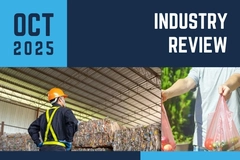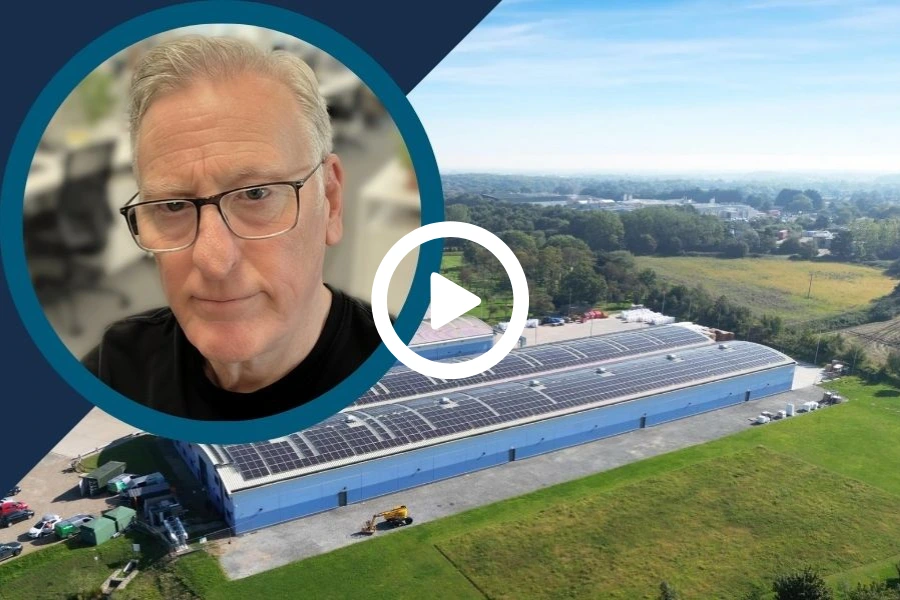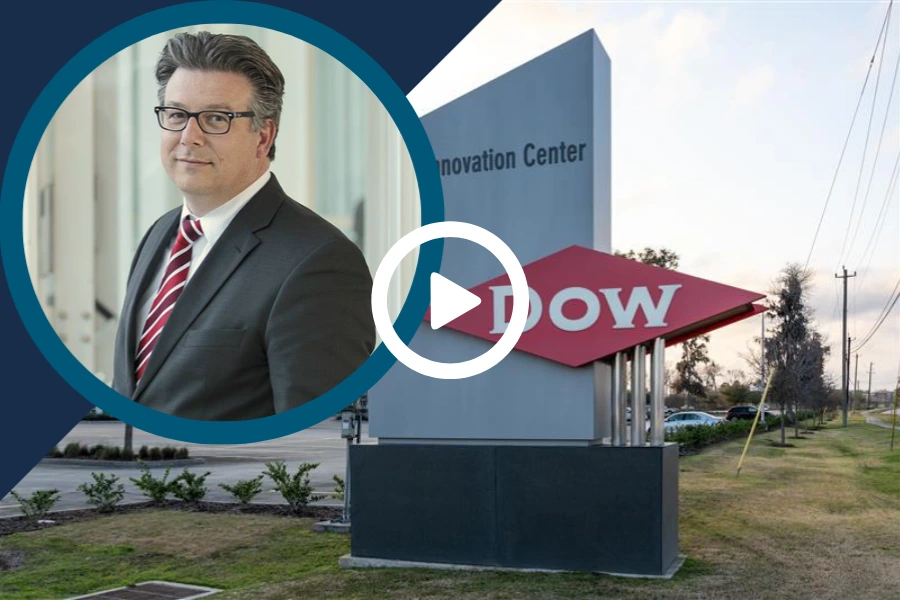October in review: EU raises plastics levy, India and California vote on PFAS ban
Key takeaways
- Policy shifts: The EU proposed raising its plastics levy by 25% to boost circular economy funding, while Türkiye lifted its ban on using recycled plastics in food packaging.
- Chemical regulation: India and California advanced legislation to ban PFAS (and BPA in India) in food packaging, signaling stronger global restrictions on harmful chemicals.
- Industry developments: Highlights from Anuga 2025 and London Packaging Week showcased innovation in sustainable materials and design, amid wider debates on automation, tariffs, and environmental competitiveness.

Last month, the EU announced a plastics levy raise and Türkiye allowed the integration of recycled plastic in food packaging.
India and California, US, moved closer toward banning PFAS in food packaging.
We also looked back at Anuga 2025 in Germany and London Packaging Week 2025 in the UK.
European Commission plans to raise plastics levy, industry groups warn of deindustrialization
The EU introduced the Plastics Own Resource levy, known as the EU Plastics Levy, in 2021 to help finance circularity endeavors. Last month, the European Commission (EC) proposed raising the tax by 25% from €0.80 (US$0.94) per kg of waste to €1 (US$1.17). We speak to Marco Musso, deputy policy manager for Circular Economy and Fiscal Reform at the European Environmental Bureau and Joan Mark Simon, founder at Zero Waste Europe, about the potential industry effects of a levy raise.

 We spoke to Spectra Packaging about ensuring aesthetics and traceability of POP in personal care.Smart Robotics founder and co-CEO explores packaging automation and labor shortages
We spoke to Spectra Packaging about ensuring aesthetics and traceability of POP in personal care.Smart Robotics founder and co-CEO explores packaging automation and labor shortages
Packaging automation has become increasingly important, as rising energy costs, labor shortages, and new EU sustainability rules reshape the industry. Packaging Insights spoke to Heico Sandee, founder and co-CEO at the Netherlands-based Smart Robotics, about how its cobot and AI solutions can help companies maintain efficiency, reduce dependency on manual labor, and adapt to evolving regulations.
Washington State urged to reconsider plastic bag ban as researchers warn of rising material consumption
A recent study concluded that Washington State, US, should drop its ban on single-use plastic bags due to increasing plastic material consumption. We interviewed the Department of Ecology to hear more about the study results and the department’s response, highlighting the complex effects single-use plastic bans can have on material consumption.
Fingerprint-locked water bottles rise in China as safeguard against tampering
Fingerprint-locked reusable water bottles emerged as a back-to-school favorite among Chinese parents, dominating sales charts on major e-commerce platforms as the new school term begins. The water bottles feature biometric security on their lids, safeguarding drinking water from potential contamination and protecting children from pranks or bullying related to tampering with their beverages. We sat down with Fork, a Chinese independent designer for fingerprint locked reusable water bottles, to learn more about the technology.
Türkiye lifts ban on recycled plastic in food contact materials
The Turkish Ministry of Agriculture and Forestry amended its 2018 Food Codex Regulation on Food Contact Substances and Materials, stating that recycled plastic can now be used in food packaging. The amendment also includes new rules for the reprocessing of plastic production scraps. The Food Codex Regulation mandates provisions for all food contact substances and materials in Türkiye. According to the regulation amendment, “recycled plastics may be used to produce materials and articles intended to come into contact with food.”
“Industrial suicide:” Ineos closes plants as Europe fails to compete
Ineos shut down its operations in Rheinberg, Germany. The closure is a result of rising energy and carbon costs, as well as the lack of European tariffs to block cheap chemical imports from Asia. The closure involves two production units, causing the loss of 175 jobs. Ineos says the plants’ shutdown come as Europe is undergoing a “deepening crisis” across its chemical sector.
California lawmakers vote to ban PFAS in food packaging and cookware
The state legislature in California, US, passed amendments in the Senate on a ban on PFAS in products, including food packaging and cookware. The proposal, Senate Bill 682, would prohibit a person from distributing, selling, or offering for sale food packaging that contains intentionally added PFAS starting January 1, 2028. The ban encompasses unit packages and shipping containers, unsealed items, such as carrying cases, crates, cups, plates, bowls, pails, rigid foil and other trays, wrappers and wrapping films, bags, and tubs. RDM discussed hitting PPWR targets with recycled fiber board and biodegradable PVOH film.
RDM discussed hitting PPWR targets with recycled fiber board and biodegradable PVOH film.
Anuga 2025 review: Alu-free cartons, connectivity & monomaterials dominate
The 2025 agro-food trade show Anuga in Cologne, Germany, broke previous attendance records, attracting over 8,000 exhibitors and 145,000 visitors. Packaging developers took advantage of the opportunity to discover and showcase innovations tapping into the latest trends in F&B packaging. On the trade show floor, Packaging Insights spoke to SIG Group, info.link, Vergeer Holland, and Daesang, about their latest solutions.
Rabobank reveals which countries could win or lose from US containerboard tariffs
The recent US tariffs on paper and pulp may trigger a zero-sum dynamic, with rising prices and costs pushing trade flows toward cheaper, lower-tariff partners like Canada and Brazil, according to Xinnan Li, senior analyst for Packaging and Logistics at RaboResearch. We sat down with Li to understand how the US tariffs on pulp and paper are predicted to shape the containerboard industry.
India moves to ban PFAS and BPA in food packaging
The Food Safety and Standards Authority of India (FSSAI) amended its 2018 Food Safety and Standards (Packaging) Regulation, proposing a ban on the use of PFAS and bisphenol A (BPA) in food packaging. The FSSAI launched a 12-week public consultation period during which businesses and consumers are invited to give feedback on the proposed ban.
London Packaging Week 2025 live: James Cropper debuts colored paper portfolio
At London Packaging Week 2025, Packaging Insights spoke with James Cropper about the launch of its Coloursource portfolio. We also explored the paper company’s expectations for the show amid shifting regulations and global market stability. Produced on-site at its Burneside mill in Cumbria, UK, the Coloursource portfolio features 50 heritage shades using the company’s dyed-in-the-fiber process.
EU ETS reforms: Industry concerns over costs, competitiveness & carbon leakage
The EU Emissions Trading System (EU ETS) aims to reduce member countries’ joint CO2 emissions by 55% by 2030 through the “polluter pays” principle, and reach climate neutrality by 2050. A joint position paper by industries, dubbed by the EC as “energy-intensitive,” outlined how the new rules would disadvantage EU businesses, including packaging manufacturers, and favor markets with less stringent environmental legislations. We spoke to the European Chemical Industry Council to find out more.
 At the K Show 2025, Dow’s director talked to us about emerging plastic technology and recycling innovations.New York packaging bill: Over 100 corporations lobby against plastic pollution regulation
At the K Show 2025, Dow’s director talked to us about emerging plastic technology and recycling innovations.New York packaging bill: Over 100 corporations lobby against plastic pollution regulation
A recent report from Beyond Plastics has revealed that in 2025, over 100 businesses lobbied to block the New York Packaging Reduction and Recycling Infrastructure Act in the US, reportedly outnumbering supporters of the bill by four to one. The bill mandates a 30% reduction in single-use plastic over a 12-year period, with efforts to improve reusable and recycled content by 2052. We interviewed Melissa Valliant, communications director at Beyond Plastics, to hear more about the lobbying against the bill.
UK Packaging Pact drives refill and reuse systems as EPR fees take effect
The UK Packaging Pact, led by the Waste and Resources Action Programme (WRAP), continued to push for reductions in single-use packaging and scaling refill and reuse systems across the country, as producers have received invoices for the base fees under Year 1 of the EPR scheme for packaging. Sebastian Munden, chair at WRAP, shared how refill and reuse can be lever, since the same pack can be used multiple times, and EPR charges apply only when it first enters the market.
PreZero warns “whataboutism” stalls climate-responsible packaging innovation
“Whataboutism” in the packaging industry can lead to a decline in consumer trust in brands by creating mixed messages and making adoption of sustainable solutions harder, according to Alexander Reitz, head of Consulting and Development at German recycling company, PreZero. Reitz told Packaging Insights that whataboutism affects the adoption of environmentally sustainable packaging, warning it can “paralyze” innovation by casting doubt on new solutions.
Plastic packaging waste decreasing in the EU after decade-long rise
A dataset released by Eurostat has revealed that plastic packaging waste generated by EU citizens is starting to decline after a steady rise since 2013. The new data shows that in 2023, the EU created 79.7 million metric tons of plastic packaging waste, or 35.3 kg per person. Dorota Napierska, toxic-free circular economy policy officer at Zero Waste Europe, told us more about the EU’s policy efforts to reduce the generation of packaging waste.
California settles lawsuit over false recyclability claims on plastic bags
The California Department of Justice (DOJ), US, settled a three-year investigation into Revolution Sustainable Solutions, Metro Poly, PreZero US Packaging, and Advance Polybag for false recyclability claims and the sale of non-recyclable plastic bags in the state of California. Packaging Insights spoke to a spokesperson from the State of California DOJ about the settlement and its continued push for recycling transparency.











